Cameroon GCE advanced level June 2025 philosophy 2
Cameroon GCE advanced level June 2025 philosophy 2
Here’s the extracted text from the provided images:
From the first image (image_3ca7a2.jpg):
SECTION ONE: WESTERN PHILOSOPHY
- Socratic epistemology is inseparable from his ethics. Justify this assertion. (25 marks)
- A mathematics student tells you in a discussion that certain knowledge is only what the mind can demonstrate. Discuss the philosophical view behind that claim. (25 marks)
SECTION TWO: AFRICAN PHILOSOPHY
- African epistemology is basically traditional. Do you agree? (25 marks)
- Is indigenous democracy a tenable form of government for Africans? (25 marks)
SECTION THREE: PHILOSOPHICAL PROBLEMS
QUESTION 5:
Read the text below and precisely answer the questions that follow:
The term “Being” is used in various senses, but with reference to one central idea and are definite characteristics, and not as merely a common epithet. Thus as the term “healthy” always relates to health, (either as preserving it or as producing it, or as indicating it or, as receptive of it), and as “medical” relates to the art of Medicine (either as possessing it or as naturally adapted for it or as being a1 form of medicine)-and we shall find other term used similarly to these,-so “Being” is used in the various senses.
Aristotle, Metaphysics, Gamma (N) 2,1003a-1003b5
QUESTIONS
a) Bring out the main theme and its main articulations.
OR
What is the philosophical problem raised above and what is the author’s solution? (5 marks)
b) Explain the following statement as used in the passage
i) Define characteristics. (2×2 marks)
ii) “Being” is used in the various senses. (2×2 marks)
c) Briefly state and explain Aristotle’s principle of substance. (4 marks)
d) Contrast briefly Plato’s Metaphysics to that of Aristotle. (4 marks)
e) Briefly demonstrate how Aristotle’s doctrine of “Causes” impacted the Scholastics. (4 marks)
f) Compare Aristotle’s “Being” with Tempels’ “Vital Force”. (4 marks)
From the second image (image_3ca7bf.jpg):
QUESTION 6:
Read the text below and precisely answer the questions that follow:
In many African societies, it is believed that the universe is divisible into two. These are the visible and the invisible parts, or the heavens (or sky) and the earth. Some people however hold that the universe is in the form of a three-tier creation, namely: the heavens, the earth and the underworld, which lies below it. African peoples do not think of these divisions as separate but see them as linked together. The heavenly part of the universe is the home of the stars, sun, moon, meteorites, sky, the wind and the rain; with all2 the phenomena connected with them such as thunder and lightning, storms, eclipse of the sun and the moon, ‘falling stars’ and so on. It is also thought to be the home of God, although people cannot quite locate where he dwells, other than saying that he lives in ‘the sky’, ‘in heaven’, or ‘beyond the clouds’, or they simply say that ‘God does not live on the earth like3 men’. God is often believed to have other things living with him or close to him. Some of these are in charge of different departments of the universe, others are his messengers and servants or ministers, and some are like his children.
John Mbiti, Introduction to African Religion, Heinemann Educational Books, London, 1975, pp 32-33.
QUESTIONS
a) Bring out the main theme and its main articulations.
OR
What is the problem the author is raising and what is his thesis? (5 marks)
b) Explain the following statements as used in the passage:
i. Some people however hold that the universe is in the form of a three-tier creation, namely: the heavens, the earth and the underworld, which lies below it
ii. God is often believed to have other things living with him or close to him.
c) Briefly state Mbiti’s view on the nature of African cosmology. (2×2 marks)
d) State two main trends in African Philosophy and briefly outline their stands. (2×2 marks)
e) How does cosmological view differ from Plato’s world of Forms? (2×2 marks)
f) State two Cameroonian philosophers and briefly bring out their philosophical insights. (2×2 marks)
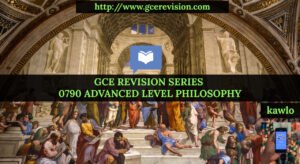


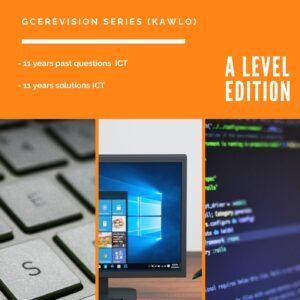
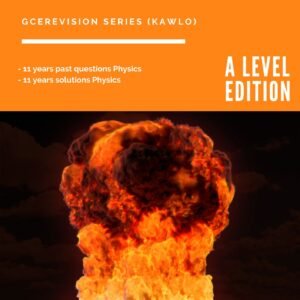
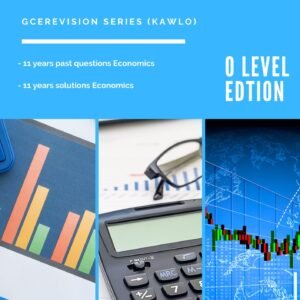
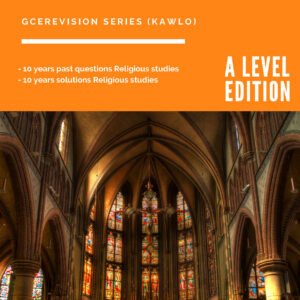









Asidy Jerry
September 18, 2025
So helpful. Thank you for this great initiative